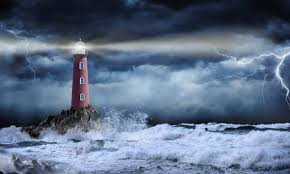The Burden of Disappointment: Seeking a Vibrant Life Beyond Religious Shadows
As someone deeply committed to defining myself by what is – my values, my actions, my connections – I'm often taken aback by a persistent, almost visceral recoil I feel when the topic of religion arises. It’s a knee-jerk disidentification, a swift and often silent declaration of "not that."
This reaction isn't born from a vacuum. It flares up most acutely when the news cycle delivers yet another gut-wrenching account of human cruelty committed under the banner of faith. The litany is tragically familiar: acts of terror, the senseless murder of those deemed "other," the systematic oppression of women, the persecution of LGBTQ+ individuals, the brutal colonization of indigenous peoples, the unspeakable violation of children, the condescending dismissal of the poor. No creed seems immune to this horrifying roster, a truth that shatters any comforting illusion of our own faith being somehow exempt from such darkness.
Beyond these large-scale atrocities, the urge to distance myself from religion also surfaces in more personal encounters. It's the discomfort that settles in when faced with individuals who, despite their professed piety, embody the very antithesis of compassion and understanding. Too often, religion appears to cultivate or at least condone a rigid dogmatism, a blinkered prejudice, a suffocating small-mindedness, and an ingrained intolerance. Beneath a veneer of righteousness, I often detect a simmering, even blatant, anger and hatred. In these moments, religion feels less like a path towards enlightenment and more like a stumbling block on the journey to a better world. It seems to exacerbate our divisions rather than bridge them.
This isn't to say that I believe religion inherently breeds malice. I know countless individuals whose faith inspires acts of profound kindness, fosters genuine community, and provides a framework for ethical living. I recognize the historical and cultural significance of religious traditions and the comfort and meaning they offer to billions.
Yet, the shadow cast by the abuses and the narrow-mindedness is undeniable. It creates a tension within me, a struggle to reconcile the potential for good with the often-realized capacity for harm. It forces me to confront the uncomfortable truth that something meant to elevate the human spirit can, and often does, become a tool for its degradation.
Perhaps this instinctive "not that" is a defense mechanism, a way of safeguarding my own values of empathy, inclusivity, and critical thinking. Maybe it's a yearning for a world where our shared humanity transcends the boundaries of belief, where actions speak louder than dogma, and where love and understanding are the guiding principles, not the self-serving interpretations of ancient texts.
The struggle, then, becomes one of navigating this complex landscape. It's about acknowledging the darkness without dismissing the light. It's about holding individuals accountable for their actions, regardless of their religious affiliation. And ultimately, it's about striving to live a life defined by what I am – compassionate, open-hearted, and committed to a world where the struggle to be fully alive is not overshadowed by the failures committed in the name of something greater.

Comments
Post a Comment